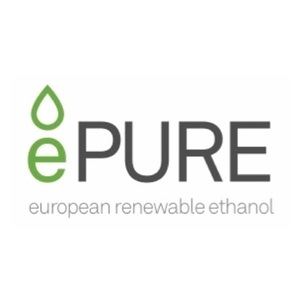ePURE: EU keeps CO2-netural fuels on the radar

October 28, 2022
BY ePURE
Negotiators from the European Parliament, Council and Commission provisionally agreed on the revision of the CO2 emission standards for cars and vans. The co-legislators backed a 100 percent reduction target to phase out the internal combustion engine by 2035 but did not entirely dismiss the contribution of renewable fuels.
The agreement foresees that the Commission prepare by 2025 a methodology to assess the full life-cycle emissions of vehicles put on the road, including emissions from the fuels and energy consumed by the vehicles.
“A more realistic EU approach would be clear for EU citizens that there are no ‘zero emission’ cars and that, on a full life-cycle measurement, more than just one solution stands out,” said David Carpintero, Director-General of ePURE, the European renewable ethanol association. “However, the EU must ensure the methodology is rolled out efficiently in the reporting of OEMs and that the objectives of the Regulation targets reduction of the whole life-cycle emissions”.
Advertisement
Co-legislators also propose a dedicated recital leaving the door open for registering vehicles running exclusively on CO2-neutral fuels, even after 2035.
“This is a good signal. If Europe is to achieve its climate goals while taking into account all citizens’ purchasing power and reducing its energy dependency, we must diversify options and valorise all local, sustainable and affordable fuels such as renewable ethanol,” said Valérie Corre, ePURE’s President. “Europe needs more than just one technology to decarbonise road transport and rolling out sustainable renewable fuels such as renewable ethanol is the most immediate, cost-effective, and socially inclusive solution at hand.”
Corre continued: “European renewable ethanol saves on average 77 percent GHG emissions compared to fossil fuel, and recent studies have shown that hybrid vehicles running on high-ethanol blends have lower GHG emissions than battery electric vehicles on a full-life-cycle basis. Opening up to the contribution of renewable fuels as early as possible will not only help broaden the range of solution for all EU citizens and preserve affordability of mobility, but also lead to faster emission reduction.”
Co-legislators also signed off on provisions increasing scrutiny over the achievement and impacts of the CO2 standards. The proposed Regulation is set to be reviewed by 2026 to assess the need to revise the reduction targets in light of technological developments, including the potential of plug-in hybrid vehicles.
Advertisement
“Many of the enabling conditions to support the electrification of the fleet are yet to be deployed. A socially inclusive transition to carbon neutrality should empower all citizens, not just those who can afford new technologies, and all countries, not just those that can afford new infrastructure,” Carpintero said. “Given the level of uncertainty concerning the availability of raw materials for batteries and rising energy prices, the EU must thoroughly assess the viability of a total ban on internal combustion engine by 2035.”
Both the European Parliament and Council are expected to formally approve the agreement before it can come into force.
Related Stories
SAF Magazine and the Commercial Aviation Alternative Fuels Initiative announced the preliminary agenda for the North American SAF Conference and Expo, being held Sept. 22-24 at the Minneapolis Convention Center in Minneapolis, Minnesota.
President Trump on July 4 signed the “One Big Beautiful Bill Act.” The legislation extends and updates the 45Z credit and revives a tax credit benefiting small biodiesel producers but repeals several other bioenergy-related tax incentives.
Saipem has been awarded an EPC contract by Enilive for the expansion of the company’s biorefinery in Porto Marghera, near Venice. The project will boost total nameplate capacity and enable the production of SAF.
Global digital shipbuilder Incat Crowther announced on June 11 the company has been commissioned by Los Angeles operator Catalina Express to design a new low-emission, renewable diesel-powered passenger ferry.
International Air Transport Association has announced the release of the Sustainable Aviation Fuel (SAF) Matchmaker platform, to facilitate SAF procurement between airlines and SAF producers by matching requests for SAF supply with offers.
Upcoming Events










